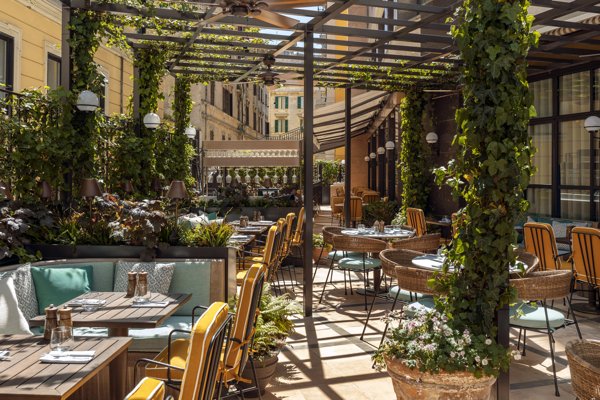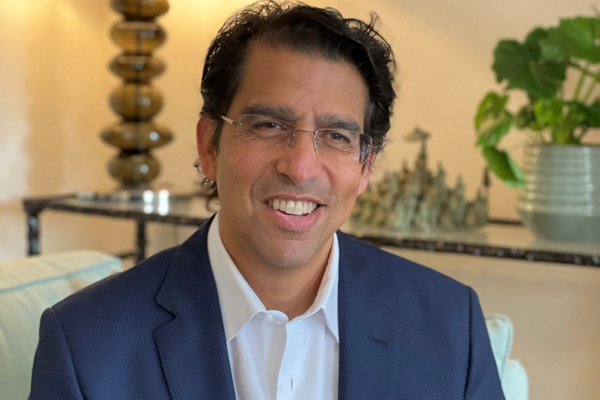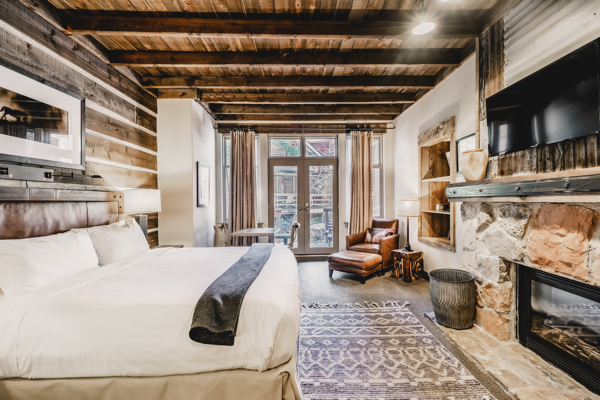For hotel investor Ramsey Mankarious and his London-based Cedar Capital Partners team, finding great deals at good prices is everything. But perhaps even more important, he said, is finding the right partners – people he and his team actually want to work with because if the pandemic proved one thing it was that having good investment partners and lenders who want to row in the same direction can make or break an asset.
“After 18 years of Cedar, we now have the luxury of working with people we like and trust. When times are good, everyone is a great partner. But when times are bad you really know who your good partners are,” reflected Mankarious, who added that unlike some other investors he knows Cedar had the best possible outcomes for its portfolio as it worked through the pandemic. “Even if you’re making less money, working with people you like and trust is priceless.”

The small shop with a team of less than 30 and a current portfolio that totals 12 assets with a net value of about US$1.5 billion is very busy today – in a good way, Mankarious suggested. It is on the lookout for opportunistic deals, primarily in the luxury and lifestyle segments, and Cedar also focused on upgrading its current portfolio with assets currently offline for refurbishment in Florence, Amsterdam and Edinburgh.
Cedar Capital, which was founded in 2004 and has made hotel investments in excess of US$4 billion, has also been closing off-market deals in New York City and Nashville, Tennessee, and is actively looking in Europe. Among existing goals is adding an office in Asia Pacific (it also has an office in New York City) to source deals further afield.
More recently, Cedar Capital Partners acquired the Florence Palazzo Riscoli and the 320-room, Warwickshire, England-based Belfry Hotel & Resort, which has hosted four Ryder Cups. In partnership with Goldman Sachs, Cedar bought the 4-star Belfry from KSL Capital for an estimated price £140 million (US$176 million) and plans to add 150 keys and more wellness amenities.
In December 2020, it acquired with Flip Maritz’s Broadreach Capital Partners the famed Sundance Mountain Resort in Utah from Robert Redford, and earlier that year acquired the 275-room Shelborne South Beach in Miami Beach, again for US$120 million. Both will get attention with a lodge, among other things, being added at Sundance. The Shelborne was due to close for a more complete refurbishment, but with Miami Beach performing so well, ownership has pushed the plan back.

Mankarious said the objective and business plan as long-term holders at Sundance is “not to screw it up.” Their aim is to be stewards to what Redford developed over the last 50 years. There has been talk of growing the concept elsewhere, but finding the perfect location that can support nature, art and recreation is no easy task. There is no timetable for growth, but ownership is looking.
Finding the next deal
Cedar Capital generally takes about a 10% ownership stake in its deals and brings in one major equity player from institutions, high net worth individuals or sovereign wealth funds. Debt is usually relatively conservative at 50% to 60%.
Mankarious, who is 53 and spent several years as a vice president of acquisition and development for Saudi Prince Alwaleed’s Kingdom Holding, said finding the next deal is always top of mind for Cedar Capital. It is definitely in more of an acquisitive mode today, preferring to buy in key gateway cities and resort locations where assets might be a bit “broken” and need some repositioning at the right price. It is paying closer attention to the lifestyle segment these days and today might be the biggest owner of Hoxton-branded hotels with four assets in hand. It also brought the Kimpton brand to Europe when it acquired and repositioned an asset in Amsterdam. “And that’s very much opportunistic. If we could find more luxury, we would buy more luxury hotels,” he added.
Distressed pricing does not seem to exist for assets Cedar Capital is sourcing, Mankarious continued. “It really hasn’t materialized at all – like zip. And that’s probably for the best for most everybody.”
While prices are gaining more traction in resort locales compared to city centers, Mankarious said available inventory in key gateways isn’t very robust. “Historically those city center properties are the ones that fair best, and I would love to own 10 hotels in London. But I can’t find one,” he explained.
When asked what markets Cedar Capital is targeting, Mankarious said they love New York, London, Miami, Paris – all the main gateways. “Some people say, ‘Oh, New York and the like are going nowhere.’ No. They are the best markets, they will always be the best markets and I wish I could buy all my hotels in these markets,” he added.
Yes, markets in the U.S. are more liquid and there are opportunities to be had, Mankarious said, but in Europe nothing that fits Cedar’s prerequisites has been available in markets like London or Paris for years. So, for now, Cedar is acquiring assets in Florence, Edinburgh and the like.

The good news is that private Cedar Capital has no pressure to expand at any particular rate. “Our model for the last 18 years has been ‘we can buy 10 hotels; we can buy zero hotels.’ It doesn’t make a difference as we have no pressure to put money out.”
And that approach appears to have been a blessing in disguise. Cedar refused to overpay for assets before the Lehman Brothers financial collapse in 2008 and was outbid on multiple occasions. After that financial meltdown and avoiding all that distress, it went on to buy US$2 billion worth of assets at more favorable prices.
Mankarious and Cedar Capital are prepared, again, to take advantage of the newly emerging rebound in performance. The company actually grew during COVID by adding to the team. “There’s going to be great opportunities coming… People are traveling more than ever. People are appreciating life more than ever and want to stay in a hotel. So, I think our business is in a great position to benefit going forward – no question. That’s what we do.”
Now it comes back to finding the right deals at the right prices, and in the right locations, which Mankarious admits is a big challenge based on their strict criteria. “You must have conviction,” he added. “We only work in hotels that we like because we put so much effort into it – whether it’s a small hotel or a big hotel… And it’s not just about the money; it is about finding the right partner and the right hotel. So, yeah, it’s hard to find all of that.”
It’s not work
More personally, Mankarious is thrilled for a return to normalcy, spending more face-to-face time with his close-knit team and reaffirming how much they like working together.
“I don’t consider what I’m doing work,” he said. “So, I’m right back into it – looking for new deals. Has anything changed? Not really. The pandemic just showed you the uncertainty of life. So, we try to enjoy it more… When I go to a destination, I might not take the last flight at night anymore. I try to maybe spend the night and go see some things.”
Filled with more optimism than ever, Mankarious holds strongly to the belief that the hotel industry is a phenomenal place to spend a career. “We are in the best industry in the world,” he said. “People who say business won’t be the same – that’s total rubbish. We’re just going from strength to strength to strength, and it is only going to get better.”
